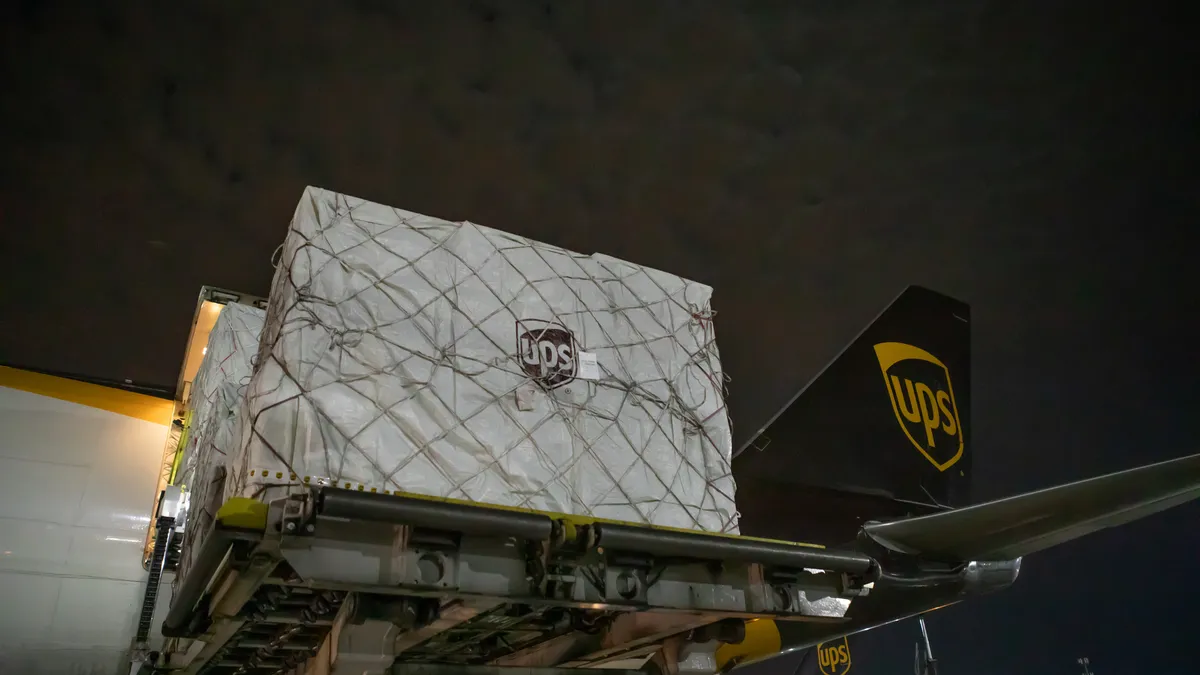Dive Brief:
- UPS is cutting costs in its air network as more shippers shift to the company's ground transportation services, CFO Brian Newman said on the company's April 25 earnings call.
- In UPS' U.S. domestic segment, average daily air volume declined 16.7% YoY in Q1, while average daily ground volume declined just 3%, Newman said.
- With demand falling, the delivery giant worked to trim operating expenses in its air network. It reduced aircraft block hours within its two-day shipping operations by "adjusting package flows to maximize utilization on our next day flights," Newman said.
Dive Insight:
Moving from air cargo transport to slower, but less expensive ground shipping becomes more attractive for businesses in an inflationary environment. The tradeoff is even easier to justify as UPS and other carriers make steady improvements in transit times within their ground networks.
"We see customers moving out of air to ground," CEO Carol Tomé said on the call. "Why? Well, we’ve really worked to improve our time in transit. So we’ve got the fastest time in transit now, so you can get your package where it needs to go quicker than before, and people are looking for value."
The performance of UPS' SurePost service, which leverages the U.S. Postal Service for last mile delivery, in Q1 demonstrates the appeal a low-cost shipping option can offer in uncertain economic times. SurePost volume in Q1 grew 1.8% YoY, according to Newman, even as the company's overall average daily U.S. domestic volume fell 5.4%.
Demand declines also drove UPS to adjust its international air cargo network. The company has reduced its scheduled flights to match lower demand, but it can still quickly add flights where needed if volume rebounds faster than expected, Newman said.
"Across our global business, we will continue to manage headcount with volume levels," Newman said. "And in terms of overhead, we see opportunities to further reduce costs by leveraging technology."
Rival FedEx has also slashed costs in a weaker demand environment. For the quarter ending Feb. 28, its Express unit cut flight hours by 8% and parked an additional nine aircraft, FedEx President and CEO Raj Subramaniam said on a March earnings call. The company is also leaning on third-party air carriers to move less urgent shipments, while its own aircraft fleet focuses on priority package volumes.













